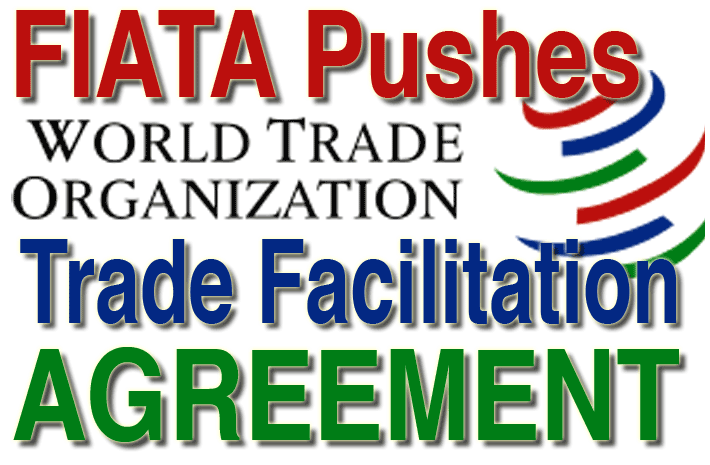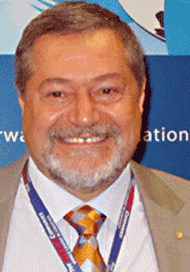
The
World Trade Organization currently has 161 members, but
only 19 have ratified the 2013 “Bali Package”
Trade Facilitation Agreement (TFA).
The TFA
will enter into force once two-thirds of members have completed
their domestic ratification process.
Despite
a rather steep hill to climb, FIATA hosted a debate at World
Trade Organization (WTO) headquarters in Geneva aimed at
getting to the heart of implementation, combining a panel
of representatives from ICC, ITC, UNCTAD, WCO, and WTO.
The aim—aside
from the obvious—was to improve the awareness of the
TFA’s crucial importance not only to private sector,
but also to governments.
Process
Ongoing
In December 2013, WTO members concluded
negotiations on a Trade Facilitation Agreement at the Bali
Ministerial Conference as part of a wider “Bali Package.”
The Trade Facilitation Agreement contains
provisions for expediting the movement, release, and clearance
of goods, including goods in transit.
It also sets out measures for effective
cooperation between customs and other appropriate authorities
on trade facilitation and customs compliance issues.
 Up
To The Minute
Up
To The Minute
“It was quite clear that trade
is not only about goods,” reports FIATA Director General
Marco Sorgetti from the sidelines, “but it more and
more concerns services, and the approach of governments
on opening their home markets to exchange services such
as logistics and transportation will determine the ability
of their citizens to engage in global trade in future.
“As the dust settled at our Geneva
meeting,” Mr. Soghetti continued, “one thing
became clear—the implementation of the WTO TFA is
crucial work that requires participation at all levels of
the public and private.”
 Weekend
in Parisi
Weekend
in Parisi
“Local industry particularly will
need to connect with each government to assist in the ratification
and implementation process,” noted Francesco Parisi,
the immediate past president of FIATA.
“We must confidently look into
the future of trade with inspiration and courage, I daresay
with the objective of achieving a higher level of development,
even if this may require, at times, leaving some of our
comfortable habits behind.
“No change takes place if we are
afraid of the future and of losing something of what we
own today.
“But standing still is no option
if we do not wish our precious trade lanes to wear out and
wither,” Mr. Parisi said.
Geoffrey



